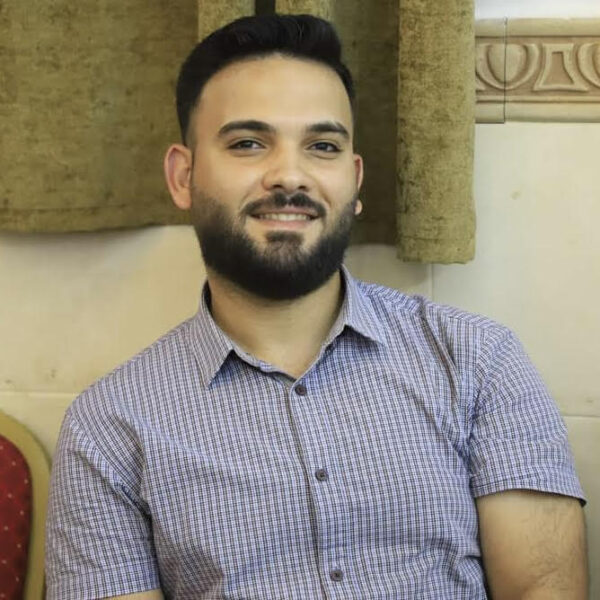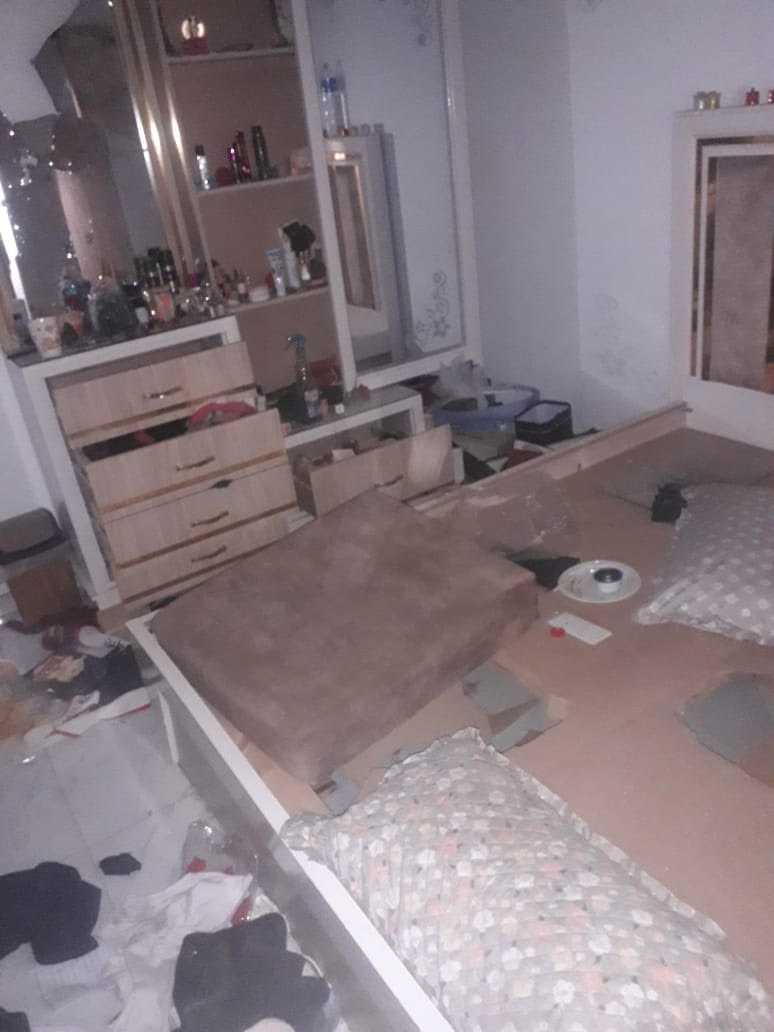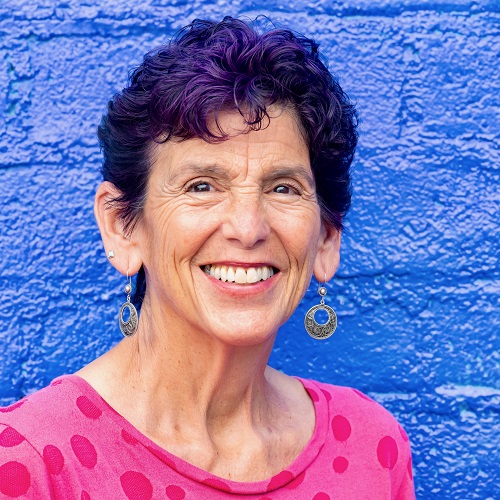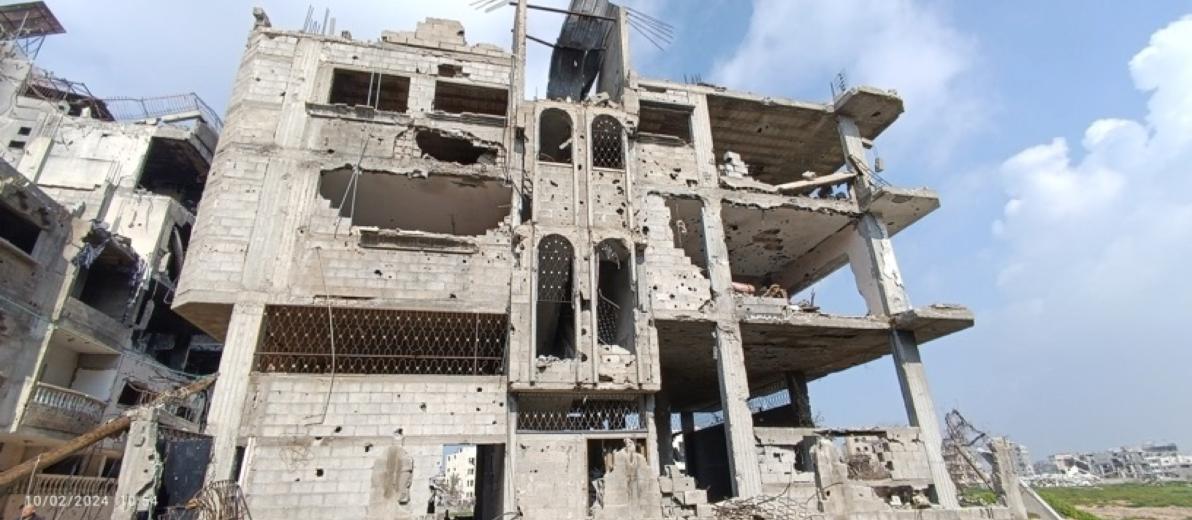I was surprised to get a call from my brother, Bilal. “I’ve been trying since morning,” he said. He sounded breathless, as if he’d been running.
“Where are you?” I asked, concerned.
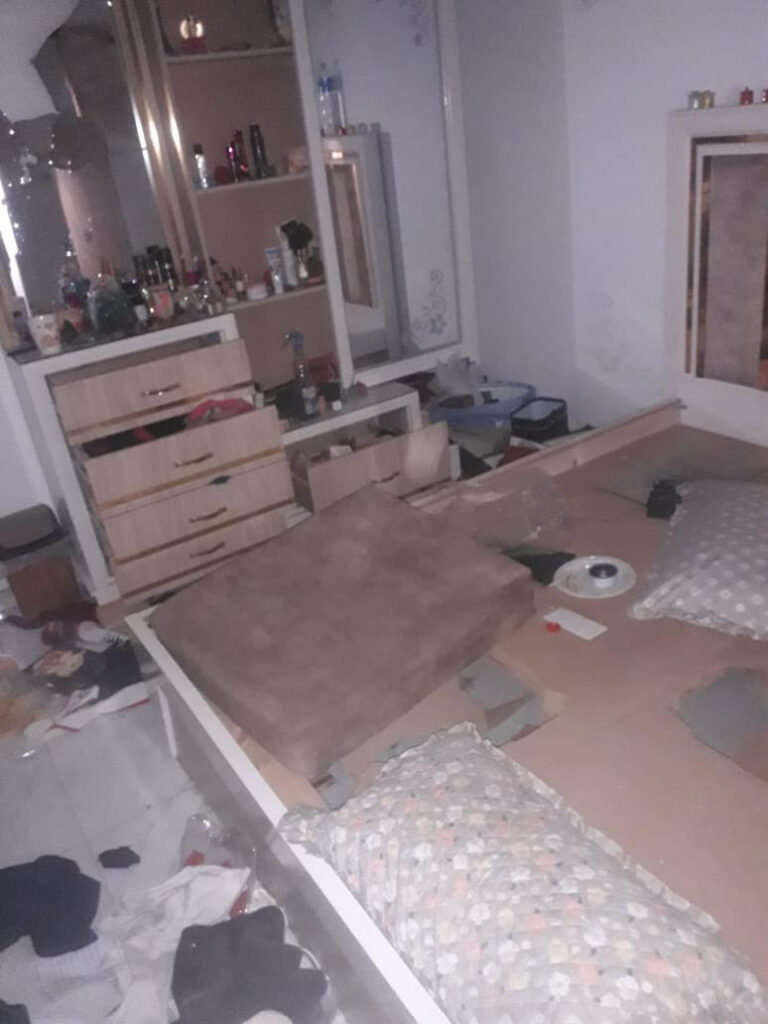
“In Khan Younis, the Nemsawi neighborhood,” he told me. “I went to check on your apartment. It’s destroyed, Mustafa. The door is missing, the furniture broken. There was blood on the floor and Hebrew phrases on the walls. I took some pictures and videos to show you.”
I could barely take in what he was telling me. “Why would you go there?” I asked sharply. “You know how dangerous that is.”
He told me that when the Israeli army withdrew from that area of Khan Younis in their advance toward Nasser Hospital, residents were hurrying back to check on the condition of their homes and rescue what was left of their belongings.
When Bilal reached my neighborhood, he’d found the streets destroyed. Most of the 30 residential towers in our area were completely or partially destroyed. There was not a single apartment in the towers that had not been stormed. Some were burned, others destroyed by missiles, and still others had had all their contents vandalized. He could not even recognize the landmarks of the area.
I had not seen my apartment since the night in January when my wife Reham, our newborn daughter Ayla, and I had fled under drone fire and shelling as the Israeli army began to close in on the area nearest to the hospital. After short stays in several locations, none of which were any safer than any other, we’d settled in a tent in Rafah, along with over a million displaced people from all parts of Gaza.
“You did a foolish thing!” I told Bilal. “Don’t put yourself in danger like that again.”
“But there is no door to your apartment and all the windows are broken,” Bilal said. “Thieves can easily get in and steal whatever they can.”
“Let them steal! My home, my dreams, are gone,” I said. “Why should I come back and look at what’s left of the apartment now? Allah will compensate me with something better.” I knew that my situation was like other people’s and that lamenting and wailing were of no use.
“Just don’t go back there,” I told Bilal one last time before the signal faded and we were disconnected. I couldn’t stop thinking about my brother. In that moment, I was more concerned for his safety than what had happened to the apartment.
But despite my scolding, Bilal returned to the apartment the next day. After many attempts, he was finally able to contact me to let me know he was there and ask if there were important items — official papers, certificates or money — he could rescue. I told him that I’d taken all my papers and other valuables in a small emergency bag that I had prepared, knowing that we would be evacuated from the area.
“Just bring any food supplies you find,” I said, “because we couldn’t take anything like that with us.”
“There’s nothing but a three-kilo bag of sugar,” he told me. That made me as happy as a child who has found his favorite toy after a whole day of searching for it. I told him to bring me one kilo and take the other two kilos to our family. My father drinks a lot of tea and was outraged by the rising cost of sugar. I knew that the gift of sugar would please him.
Later that day, Bilal made his way to where we were staying in Rafah. He brought me the sugar, told me that my family was fine, and sent greetings to me, my wife, and my daughter. He was very happy when he saw our baby daughter and carried her in his arms while my wife prepared food for him. Then we sat down while he related all the details of his risky visits to the apartment. He handed me his phone so I could look at the pictures and videos he’d taken with great difficulty.
I was finally able to see the extent of the damage, and my heart burned at the images of our apartment. The apartment was on the first floor of a four-story tower, with four apartments on each floor. Bilal had not been able to find any signs of the tower’s door. When he climbed into the building, he’d found all the apartment doors open and destroyed. There was no outside door to my apartment; the door frame itself had been dislodged. The windows were shattered, the curtains torn, and Hebrew graffiti was scrawled on the walls. It appeared that the bedroom had been used for sniping and surveillance.
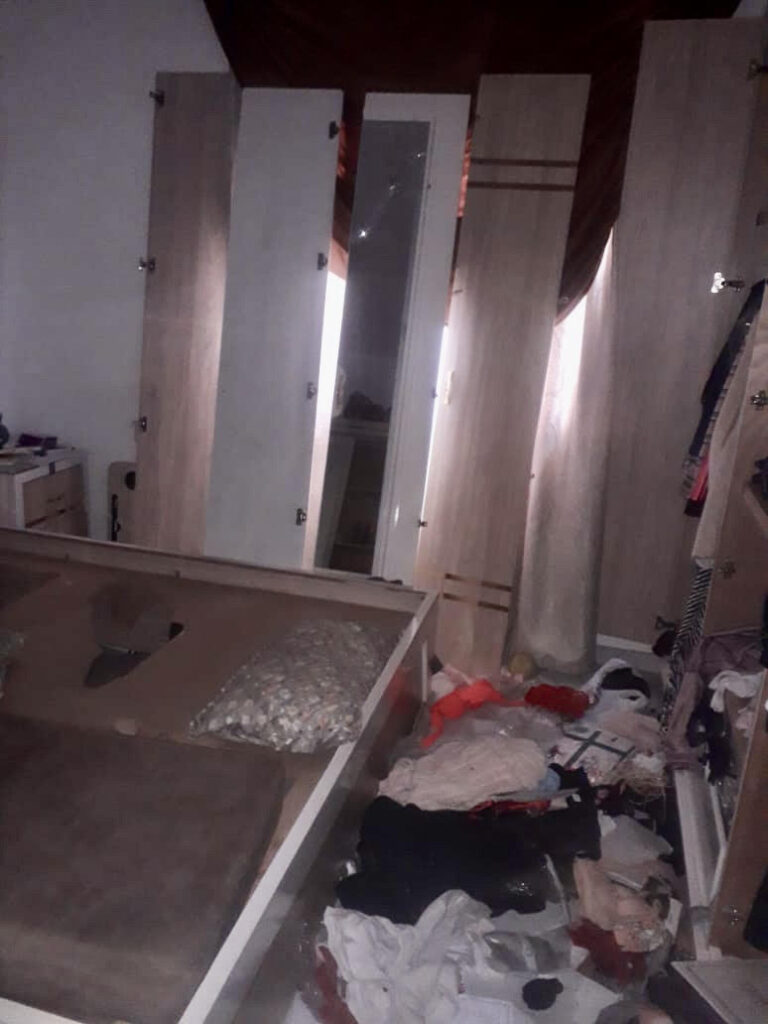
Every door was hanging askew on its hinges. Furniture was scattered randomly around the rooms. The bed was dismantled, the foam mattress pad ripped apart. Soldiers had torn the doors off the wardrobe and rummaged through all the clothes, tearing most of them; the contents of every drawer were strewn across the floor. There was dirt on the walls and the floor, even excrement in the hallways. Nothing usable seemed to remain.
I’d expected this would happen, because I followed the news and knew that the occupation forces were blowing up buildings, storming homes, and destroying everything in their path. Still, the thought that I would be without a home felt overwhelming. Do they hate us to this degree? I wondered. What did I do to ruin my future? I had not yet paid the remaining installments for my apartment. Where would I start? How could I live in the middle of this devastation? And where would I get the money to fix the apartment, since I’d lost my job and source of income?
Then I saw my wife’s tears and the pain in her eyes. “We have no home!” she cried.
“Our dreams were in vain. Your long journey to obtain the apartment is gone to waste, lost in the blink of an eye.”
I pulled myself together and hugged her. “We’re still fine,” I said, trying to reassure her. “We have each other and our daughter Ayla.” Reham nodded and wiped her eyes. “And we’ll do whatever we can to fix everything. Allah will not forget us and will compensate us with the best.”

